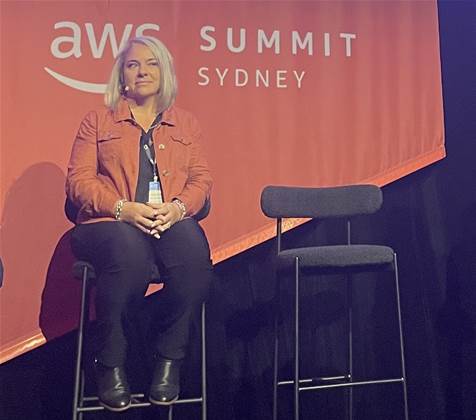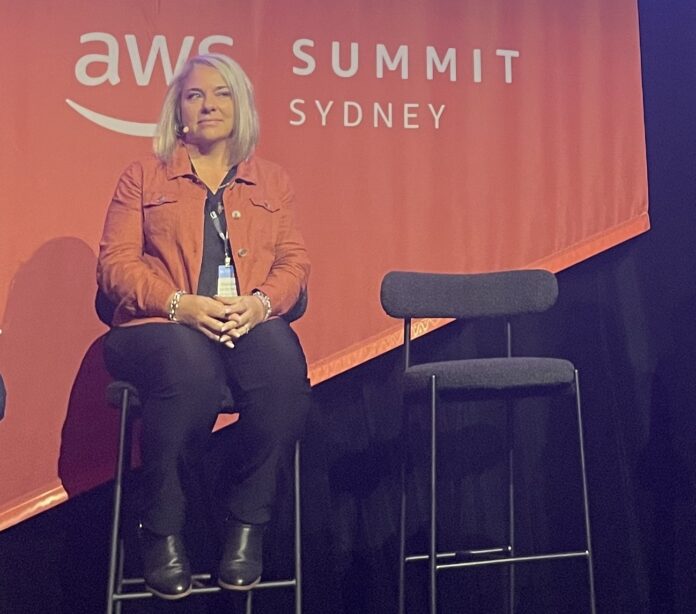[ad_1]
TPG Telecom has embarked on a program of work to uplift its data estate and governance in preparation for anticipated uses of generative AI.

Melanie Van De Merwe from TPG Telecom.
Executive general manager of IT and digital Melanie Van De Merwe told the AWS Summit Sydney that the telco decided to work on its data foundations “towards the middle to the end of last year”.
“We realised to go down this AI journey we’re going to [have to] look at our data estate,” she said.
“At TPG, we’ve made a deliberate decision not to be a fast adopter [of GenAI] – we have decided to be a medium adopter and first fix some of the basics in our company such as our architecture.
“A lot of it is still legacy, [including] some of our data aspects.”
Van De Merwe said the telco is currently dealing with a “disparate” data estate, with “data sitting everywhere” and a lack of standard definitions for key terms across the group’s operations.
“Even the word ‘customer’ means something different in many areas,” she said.
“So, with [our program of work] we’re going to be very strict on our data governance – [creating] one set of data rules so that ourselves and GenAI understand what the definition of a term means.”
The program of work will also address how to bring data together – such as by using a data mesh or data lake structure – so that it is available for GenAI use cases.
“We’re looking at absorbing structured [and] unstructured data – even video and voice data,” Van De Merwe said.
“We run a network [and] take a lot of network data in, so there’s opportunity for us there. And then of course looking at mesh architecture and data lakes, and just becoming more flexible and structured [in our approach to managing data].”
Part of the reason for the foundational work is that there is little perceived margin for error if TPG was to go down the path of using GenAI on a customer-facing use case.
Van De Merwe noted that with a purely internal-facing application of GenAI, if an experiment was to fail or “hallucinate a bit”, it could be fixed in the background with few problems caused or damage done.
That same leeway did not exist for customer-facing uses of GenAI.
“With our customer, we have one chance,” she said.
Synthetic experiments
In the first instance, TPG will use synthetic – rather than actual – data to test out some potential use cases for GenAI technology.
The telco spoke on a panel discussion hosted by Accenture, suggesting the consultancy has involvement in the program of work.
“Synthetic data has got a lot of advantages for us,” Van De Merwe said.
“We don’t need to test with live production data. We could simulate data and do a number of runs, which in the past was [a capability that was] not available to us.
“Even in our testing environment, we could look at different test cases using different sets of data and project what we think is going to happen there.
“We hopefully will start very shortly on that journey.”
Ry Crozier attended the AWS Summit Sydney as a guest of AWS.
[ad_2]
Source link


